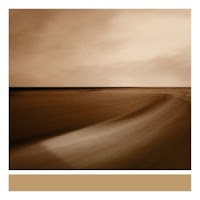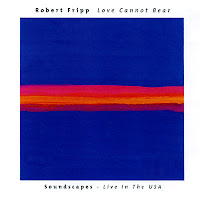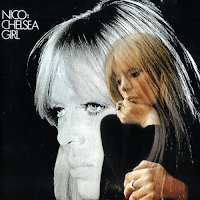
The second thought that went through my head was a recollection of an evening many moons ago in Colchester. My house-mates Barry and Neil and I descended upon a pub around the corner from our house to play pool. It felt like we were three cowboys walking through the doors of a dusty saloon (an analogy that has been reinforced over time by something elsewhere in the story); the assembled old goats and regulars all turned around as we walked in, and if it wasn't for their general lack of interest it would have felt threatening. Even the big dog sat under one of the wooden chairs couldn't really be bothered to growl. Instead we bought drinks and were just heading to the pool table out back when I spotted a box on the windowsill containing – unexpectedly – a load of old records. If one thing has become apparent through my frequent eulogising of my student days, it's that I spent a lot of money on music, and quite a lot of it from charity shops. Buying vinyl from a pub was, however, definitely a one-off.
While Barry went off to set up the pool table, shaking his head disapprovingly as he went, Neil and I began raking through the cardboard box of records. I came across a perfect condition LP of Ennio Morricone's soundtrack to The Good, The Bad And The Ugly (now the Western analogy makes sense, you see) and Neil found a battered copy of 'I Don't Like Mondays'. I still have the LP; Neil discovered later that the 7" was basically snapped in half and certainly unplayable.
I'd love to say that I'd listened to The Good, The Bad And The Ugly soundtrack this week, but I didn't. So we shall move on from this elaborate and undoubtedly pointless anecdote and focus on what I've been listening to these past few days.
Mostly it's been the new Brian Eno album, Small Craft On A Milk Sea, released on Warp in the last fortnight. I've become used to Eno albums sounding like ethereal stasis – The Shutov Assembly is one of the most delicate, beautiful albums I own, and I sometimes put it on to help me fall asleep on the train to work (hopefully Eno wouldn't take this the wrong way). I know that this isn't the only aspect to Eno, and many times I've listened to albums showcasing a different side to his sound and found myself thinking 'What was that all about?' Nerve Net, for example. I remember borrowing that from Stratford-upon-Avon public library and trying three or four times to get my head around it before giving up, perplexed.

I wouldn't say Small Craft is like that, and, besides, I'd probably find that Nerve Net makes complete sense to me now. But it is different. Perhaps the release of this album on Warp has some significance here; Eno albums have tended to be released on his All Saints label, or self-released as downloads. Warp was initially exclusively a techno label but has since fragmented to focus on an infinite number of musical shards, including electronically-supported rock and lots of other micro-genres too. Small Craft has lots of drifting electronic introspection ('Emerald And Lime'), but it also features spindly beats ('Horse'), juddering rhythms ('Flint March'), distorted guitars and even a blissfully motorik punk freakout that wouldn't go amiss on a Neu! covers compilation ('2 Forms Of Anger'). It is utterly Eno and a perfectly-timed reminder of why he remains so essential, covering as it does so many of the facets that have featured in his work over the past four decades.
Vinyl Corner

'My Definition Of House Music' by DJ Hell (Helmut Geier) was released on the Belgian R&S label and I picked up this repressing in the late Nineties. First released in 1992, the original version features sampled strings and what we used to call Italian house piano riffs as well as squelchy synths. Taking a look at the always useful Discogs website, I found out that the strings were sampled from a David Byrne song. No wonder I like 'My Definition Of House Music'. This is one of those classic 12" singles from dance music's crucial first flushes and it still sounds excellent today.
Not, however, as excellent as the B-side remix by Resistance D (Maik Maurice and Pascal Dardoufas). This mix reminds me chiefly of the simplicity of 'Lush'-era Orbital mixed with the prog-house tendencies of early Spooky. It has a denseness and urgency that the original lacks and a neat suite of 303 bubbles for the quintessential acid house freak out, something that (at least to me) sounds every bit as thrilling as it did in the late Eighties.





















